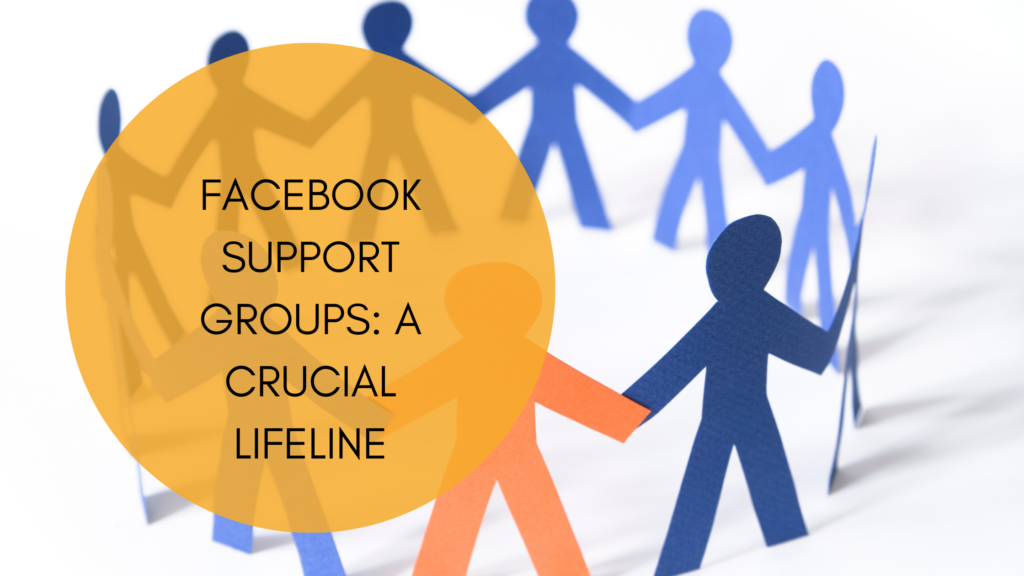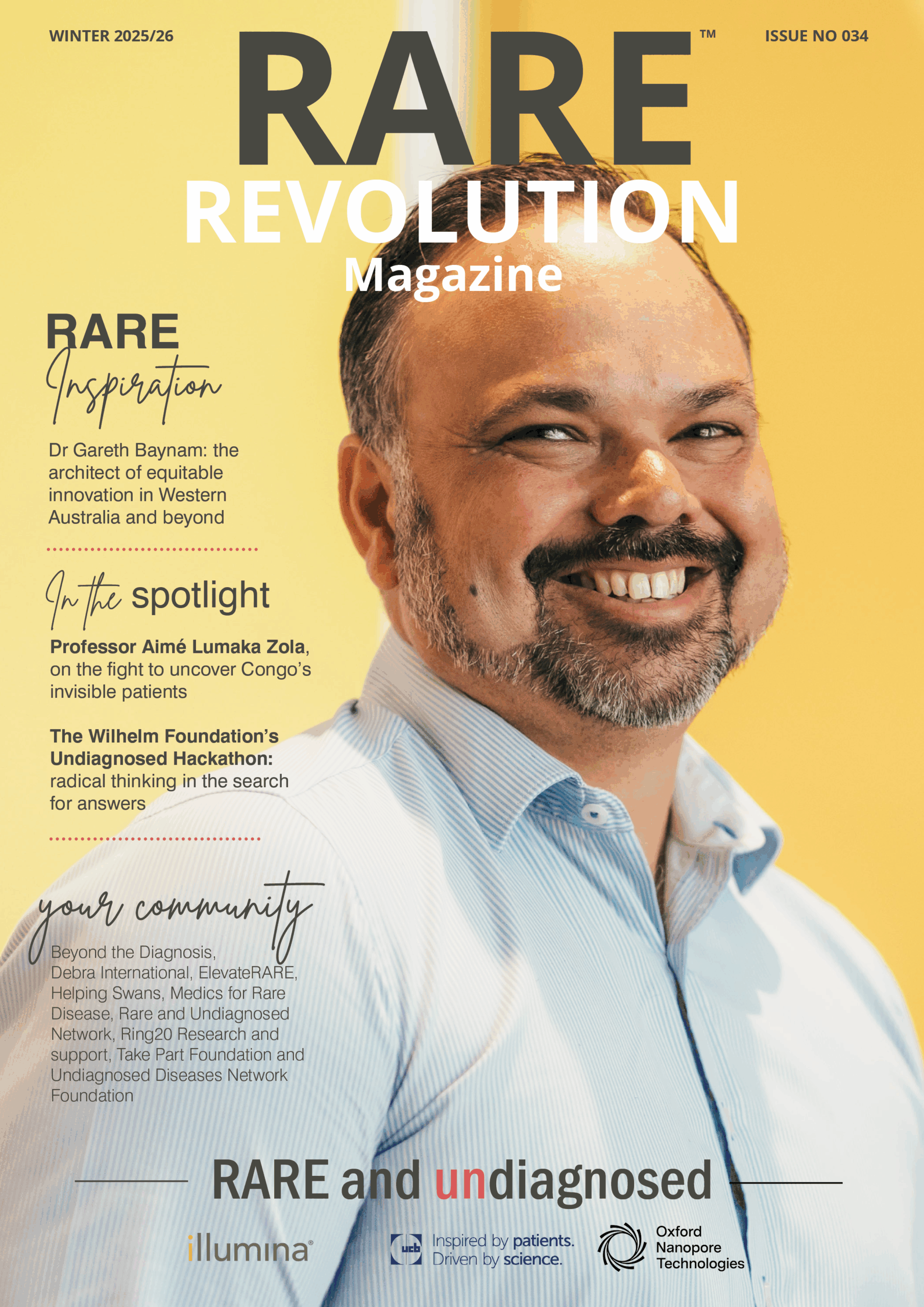RARE but real: finding recognition and support for IgG4-RD
SPONSORD CONTENT

Having endured over 20 years of pain and isolation, Silvia Borgers is now starting to rebuild her life and plan for the future. Still living under a shadow of some doubt and uncertainty about her condition and potential flare-ups, she advocates for greater awareness of conditions like hers—providing much-needed support and understanding of the physical and mental burden rare diseases can impose
Written by Emma Bishop, RARE Revolution Magazine
Interview with Silvia Borgers, rare disease warrior, Netherlands

Silvia Borger’s diagnostic journey began over two decades ago, after the birth of her daughter. She began experiencing pain and inflammation in her legs and shoulders and consulted with her family doctor who, she feels, didn’t fully comprehend the severity of her symptoms. “I think she just thought I was complaining and was just another unhappy mother. They often think this of women,” Silvia explains. This had a significant effect on Silvia’s mental wellbeing and heralded the start of a medical journey of doubt and uncertainty that would at times, truly test her mental resolve.
“I felt very insecure about myself, and I thought maybe I’m just someone who can’t take as much pain as other people. Maybe I’m just a weak person.”
At times Silvia was in so much pain she was unable even to brush her hair, but blood tests proved inconclusive.
Silvia’s condition worsened eight years ago, when severe inflammation in her feet and ankles made it almost impossible for her to walk, but again tests came back clear. She then presented with purple marks on the front of her legs which indicated sarcoidosis (a rare condition that causes swollen tissue) and she was referred to a specialist centre. Alongside symptoms of breathing difficulties and a fever, Silvia was diagnosed with acute sarcoidosis, a diagnosis that didn’t sit right with her. “I was told it will take a year or two to start feeling better. And I thought, ‘that can’t be right because I’ve been feeling unwell for more than 15 years now’, but they insisted it was sarcoidosis.”
Almost two years later, Silvia developed further difficulties breathing and struggled with speaking. An ENT (ear, nose and throat) specialist diagnosed subglottic stenosis (a narrowing of the airway). At this point, growing cells were closing Silvia’s windpipe and she underwent several procedures, including a resection surgery which involved removing two rings from her windpipe. After the resection in 2024, doctors then diagnosed IgG4-related disease (IgG4-RD), a chronic, multi-systemic inflammatory condition, having found the disease in Silvia’s windpipe tissue.

When her symptoms were at their most severe, Silvia used a wheelchair and a mobility vehicle. Her fatigue was so acute that at times, she was almost bedridden. She would spend an hour on her hobbies in the morning and the rest of the afternoon in bed. Describing the extent of her fatigue she says, “I couldn’t concentrate or think. When people talked to me, I knew they were talking, but I couldn’t hear what they were saying because I was so tired.” Silvia says she relied on her family a lot during this period, and they would perform many of the household tasks.
Never wanting to be a burden to her family, Silvia has always encouraged them to live life to the full, even if that meant missing out on key events herself. She recalls her husband, Peter, attending a farewell concert for his favourite band—a band they first saw together as a couple which held fond memories for them. With Silvia unable to go Peter took their son and daughter. She says they called her during the performance and sent lots of photos and videos and although it was extremely disappointing not to attend, Silvia would never want to hold them back. “I always encourage them to go everywhere, even without me. I don’t want to be a burden to my family. They never act like I am, it’s more in my head,” explains Silvia.

Prior to becoming ill, Silvia had a successful career as an artist and ceramics teacher. She enjoyed teaching others and her work was exhibited in numerous art galleries and museums. As her symptoms worsened, she was forced to give up her career and close her studio. She explains that because she was self-employed, she received no financial support from the government, and the lack of income has been a challenge.

Managing a little-known rare disease, particularly an “invisible illness”, can present with many challenges that go beyond symptom management. Silvia has experienced a lack of understanding from both medical professionals and her own community which has caused frustration and isolation. She faced considerable misunderstanding and judgement from people living in her small town in the Netherlands, when she started using mobility aids. “People would ask me why I was using a mobility vehicle and say, ‘shouldn’t you exercise’”, implying that she was being lazy. She goes on to say “It was very difficult to explain that I could not exercise because it makes my condition worse. I was enrolled on an exercise programme at the hospital but after a few weeks they advised me not to continue as it was not helping me.” She says people would make harsh comments or give her unsolicited advice, which added an extra emotional burden to her already complex physical struggles.

Suffering with a debilitating condition for over 20 years has had a profound impact on Silvia’s mental health and wellbeing. The periods when she was bedridden and unable to carry out simple tasks or the creative hobbies she loved so much, severely impacted her quality of life. As someone who thrives on being busy and is so passionate about her work, losing her career and creative outlet was an unthinkable sacrifice she had to make and a source of distress for her over the years. Silvia says it was hard when her mind was so active and willing, but her body was letting her down.
“When you’re OK in your head but your body is saying no, that is really hard. No one wants to sit on the couch or lie in bed all day. I’m a person with all kinds of creative ideas.”
Silvia says that at times the burden of suffering compelled her to question just how much more she could bear. “I felt so miserable, and over the 20 years it was getting so bad that I told my doctor and my family that if it got any worse, I would consider euthanasia because I just couldn’t do it anymore. I could not live just laying around, it was no quality of life.”

Alongside the unwavering support Silvia receives from her family, she says that connecting with other patients via Facebook support groups has been life-changing and crucial in supporting her journey with rare and chronic illnesses. “I can’t imagine living without the patient groups: the sarcoidosis group, the subglottic stenosis group and the IgG4-RD group. I needed those people. I needed their explanations, their help and their care. They saved my life and my sanity.”
The Facebook groups connected her with others who had similar experiences, allowing her to learn from their journeys and get advice on navigating the healthcare system, which was especially helpful given the rarity of the condition and the lack of awareness among many medical professionals.
The groups also provide an important emotional outlet and sense of community. Having felt so incredibly isolated, being able to connect with others going through the same thing was a lifeline. She is now “paying it forward” by offering care and support to new members of the groups.

In the absence of any targeted therapies for IgG4-RD, Silvia is being treated for symptom management with monoclonal antibody treatment (mAb). With her health currently in a more stable position, she says she still fears flare-ups and the uncertainty of her condition. She is planning a trip to Iceland with Peter and her daughter this year, and while she hopes she will be able to fully take part in activities, she already has a contingency plan in case she is unable to—with plans to stay behind at their base to draw and paint while they go out walking. Silvia would also dearly love to return to her career in the arts and teaching, but is cautious of possible flare-ups and fatigue, and her lack of self-confidence makes her question whether she would be hireable.
Having lived the majority of her adult life with chronic and debilitating illness, Silvia would like to see greater visibility of rare diseases in the public domain to help fund research and treatments. She emphasises the importance of patient support groups in filling a gap that the medical system and society have yet to adequately fill and hopes to see more public platforms and resources available to the rare community. Having profoundly felt the effects of isolation, judgement and frustration imposed by her condition, Silvia hopes that increased awareness would provide others, like her, with the knowledge, support and empathy she so desperately sought for over 20 years.

Articles within this digital spotlight are for information only and do not form the basis of medical advice. Individuals should always seek the guidance of their medical team before making changes to their treatment.
This digital spotlight has been made possible with sponsorship from Amgen. All opinions are those of the contributor. RARE Revolution Magazine retains all copyright.










